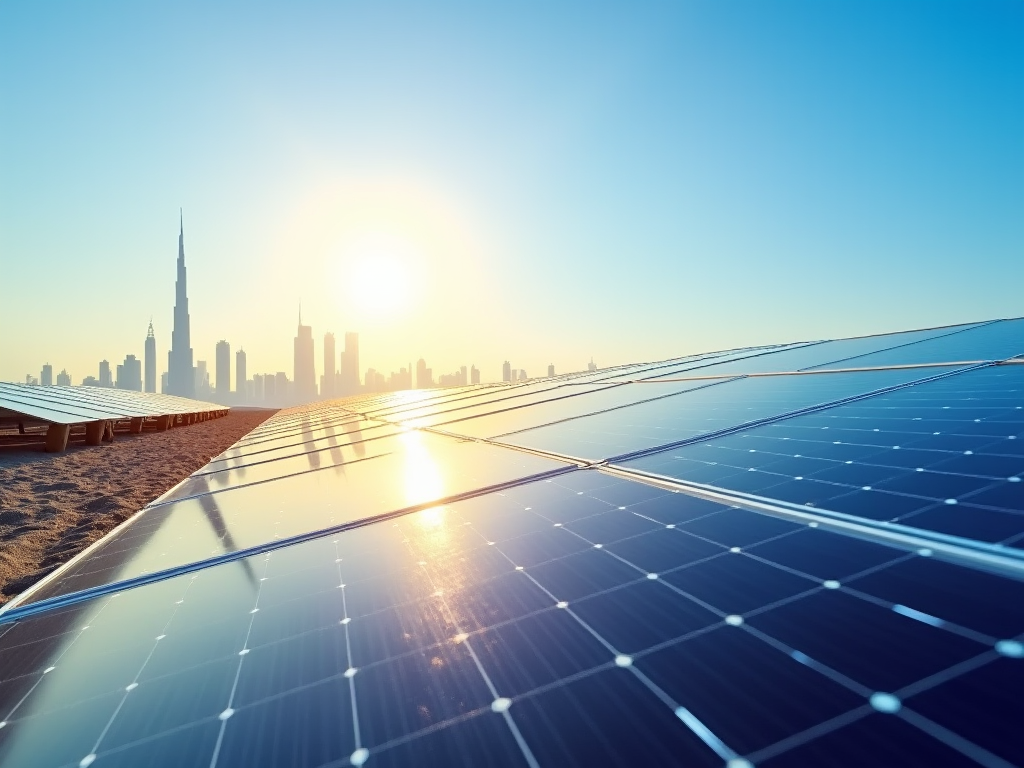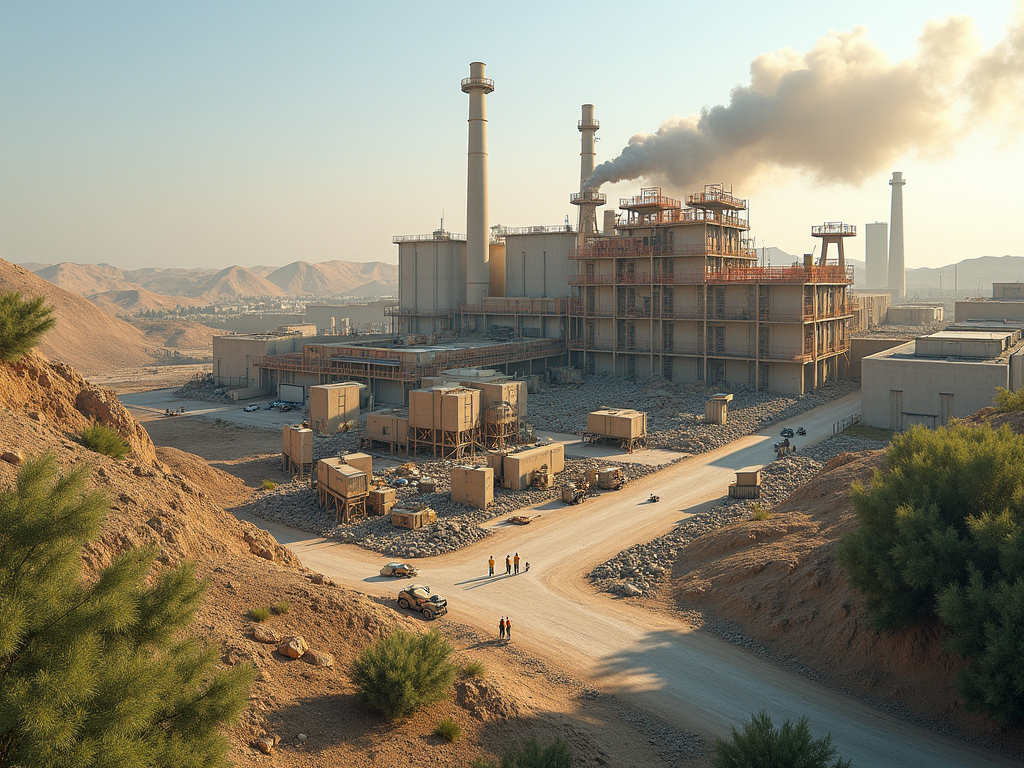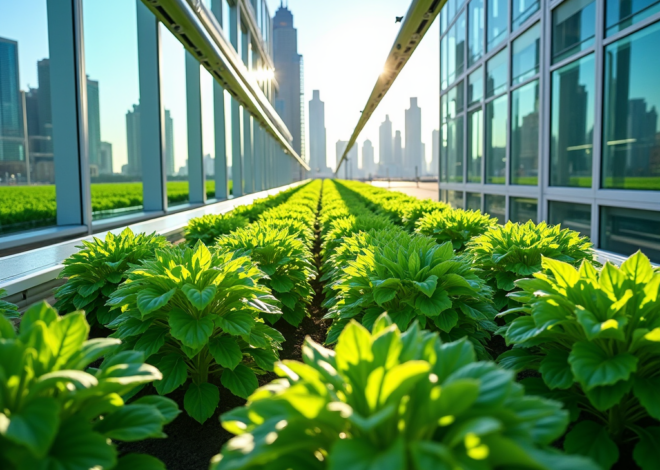
Investing in Dubai’s Energy Sector: What You Need to Know
Investing in Dubai’s energy sector presents an incredible opportunity for both local and international investors looking to capitalize on the region’s booming economy and commitment to sustainability. Dubai has rapidly transformed into a global hub for energy innovation and management, driven by its government’s initiatives aimed at diversifying the economy and reducing dependence on fossil fuels. As the city aims for 75% of its energy to come from clean sources by 2050, understanding the nuances of the energy market here is crucial for potential investors.
Why Dubai?

Dubai is strategically positioned as both a trade and financial hub in the Middle East, making it an enticing location for investments, particularly in the energy sector. The government of Dubai has proposed numerous incentives to attract foreign investments, notably within the energy domain. Some of the leading factors that make Dubai’s energy sector appealing include:
- Government Initiatives: The Dubai Clean Energy Strategy 2050 aims to develop a diversified and sustainable energy sector.
- Tax-Free Zones: Many areas in Dubai offer various tax advantages, encouraging foreign investment.
- Strategic Location: Dubai serves as a gateway to other lucrative markets in the Middle East, Africa, and Asia.
- Advanced Infrastructure: The city boasts cutting-edge infrastructure that facilitates the efficient movement of energy resources.
- Focus on Renewable Energy: With an increased global emphasis on sustainability, Dubai’s pivot towards renewable energy creates ample opportunities.
With a focus on renewable energy, Dubai has launched several landmark projects that have garnered worldwide attention. The Dubai Solar Park is one of the largest solar parks globally, and it serves as a shining example of the Emirate’s commitment to developing sustainable energy resources. In addition to solar energy, other avenues include wind, waste-to-energy, and hydrogen fuel projects. Investors will find the following key areas particularly promising:
- Solar Energy: Long-term power purchase agreements (PPAs) are in place, ensuring a steady return on investment.
- Waste-to-Energy Projects: Dubai aims to recycle 75% of its waste, creating significant opportunities in waste-to-energy conversions.
- Hydrogen Energy: As hydrogen becomes a more viable fuel source, Dubai is positioning itself as a leader in hydrogen technology and research.
- Energy Storage Solutions: Innovations in battery storage have immense implications for the stability and efficiency of renewable energy deployment.
- Smart Grid Technologies: Investing in smart grid infrastructure is critical, as it enhances energy distribution and management.
The Regulatory Landscape

Understanding Dubai’s regulatory framework is essential for any investor looking to explore this vibrant market. The Dubai Electricity and Water Authority (DEWA) is the main governing body in the energy sector, overseeing initiatives and ensuring compliance with local and international standards. Additionally, the government frequently updates regulations to promote sustainability and enhance investor confidence. Key regulations include:
- Renewable Energy Policy: This policy encourages the development of renewable energy sources through PPPs (Public-Private Partnerships).
- Investment Laws: Foreign ownership laws have become more flexible, allowing 100% foreign ownership in various sectors, including renewable energy.
- Environmental Regulations: Investors must comply with strict environmental assessments when embarking on energy projects.
Challenges to Consider
While investing in Dubai’s energy sector presents a wealth of opportunities, potential investors should also be aware of challenges that may arise. Understanding the cultural context, market fluctuations, and competition is vital before diving in. Some primary challenges include:
- Market Saturation: As more companies venture into the renewable energy market, investors may face increased competition.
- Regulatory Changes: Rapidly changing regulations can pose risks for projects that require long-term investment.
- Cultural Understanding: Adequate cultural awareness and understanding local consumer preferences is essential for successful market penetration.
- Technology Adoption: With rapid advancements in technology, keeping pace with innovations can be resource-intensive.
- Financing Risks: Securing funding for projects in a competitive landscape can be challenging.
Conclusion
Investing in Dubai’s energy sector is not only a financially sound decision but also an avenue for contributing to a sustainable future. With robust government initiatives, a strategic geographic position, and a strong focus on renewable energy, Dubai presents several attractive opportunities for savvy investors. However, it’s crucial to approach this dynamic market with a comprehensive understanding of the regulatory landscape and potential challenges. By leveraging Dubai’s unique positioning and resources, investors can make a significant impact in the ever-evolving energy sector.
Frequently Asked Questions
1. What are the key benefits of investing in Dubai’s energy sector?
The key benefits include government incentives, a strategic location, advanced infrastructure, and a strong commitment to renewable energy development.
2. Which renewable energy sources are prioritized in Dubai?
Dubai prioritizes solar energy, waste-to-energy projects, hydrogen energy, energy storage solutions, and smart grid technologies.
3. Who regulates the energy sector in Dubai?
The Dubai Electricity and Water Authority (DEWA) is the primary government body responsible for regulating the energy sector in Dubai.
4. What challenges do investors face in the Dubai energy market?
Investors may face challenges such as increased competition, rapidly changing regulations, cultural understanding, and securing financing.
5. How can foreign investors participate in Dubai’s energy projects?
Foreign investors can participate through Public-Private Partnerships (PPPs) and benefit from flexible ownership laws allowing 100% foreign ownership in various sectors.


